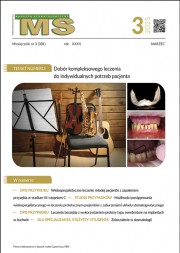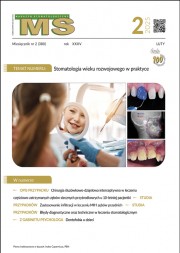
Read the text carefully. Pay attention to words in the bold print
Women may be more susceptible to oral health problems because of the uniquehormonal changes they experience. Hormones not only affect the blood supply to the gum tissue, but also the body's response to the toxins that result from plaquebuildup. As a result of these changes, women are more prone to the development of periodontal disease at certain stages of their lives, as well as to other oral health problems.
There are five situations in a women's life during which hormone fluctuations make them more susceptible to oral health problems – during puberty, at certain points in the monthly menstrual cycle, when using birth control pills, during pregnancy, and at menopause.
Puberty
The surge in production of the female hormones estrogen and progesterone that occurs during puberty can increase the blood flow to the gums and change the way gum tissue reacts to irritants in plaque, causing the gum tissue to become red,tender, swollen, and more likely to bleed during brushing and flossing.
The monthly menstrual cycle
Due to the hormonal changes (particularly the increase in progesterone) that occur during the menstrual cycle, some women experience oral changes that can include bright red swollen gums, swollen salivary glands, development of canker sores, or bleeding gums. Menstruation gingivitis usually occurs a day or two before the start of the period and clears up shortly after the period has started.
Use of birth control pills
Women who take certain birth control pills that contain progesterone, which increases the level of that hormone in the body, may experience inflamed gum tissues due to the body's exaggerated reaction to the toxins produced from plaque. That’s why a woman must inform her dentist of she uses oral contraceptives.
Pregnancy
Hormone levels change considerably during pregnancy. An increased level of progesterone, in particular, can cause gum disease any time during the second to eighth month of pregnancy – a condition called pregnancy gingivitis. Your dentist may recommend more frequent professional cleanings during your second or early third trimester to help reduce the chance of developing gingivitis. Tell your dentist if you are pregnant.
Menopause
Numerous oral changes can occur as a consequence of advanced age, the medications taken to combat diseases, and hormonal changes due to menopause. These oral changes can include altered taste, burning sensations in the mouth, greater sensitivity to hot and cold foods and beverages, and decreased salivary flowthat can result in dry mouth.
Dry mouth, in turn, can result in the development of tooth decay and gum disease, because saliva is not available to moisten and cleanse the mouth by neutralizing acids produced by plaque. Dry mouth can also result from many prescription and over-the-counter medications that are commonly prescribed to older adults.
The decline in estrogen that occurs with menopause also puts women at greater risk for loss of bone density. Loss of bone, specifically in the jaw, can lead to tooth loss. Receding gums can be a sign of bone loss in the jawbone. Receding gums also expose more of the tooth surface to potential tooth decay.
GLOSSARY
avanced – zaawansowany
altered – zmieniony
be more prone to – być bardziej podatnym
be more susceptible – być bardziej podatnym
beverages – napoje
birth control pills – pigułki antykoncepcyjne
bright – jasny
buildup – nagromadzenie
canker sore – afta
cleanse – oczyszczać
clear up – (tutaj), przechodzi, mija
combat – zwalczać
density – gęstość
exaggerated – przesadny, przesadzony
expose – narazić
flow – przepływ
fluctuation – wahanie
include – zawierać
in particular – zwłaszcza
increase – zwiększyć
irritant – czynnik drażniący
moisten – nawilżać
numerous – liczne
oral contraceptive – doustny środek antykoncepcyjny
puberty – dojrzewanie, pokwitanie
response – odpowiedź, reakcja
salivary gland – ślinianka
sensation – uczucie, poczucie
stage – etap
supply – dostarczenie, dostawa
surge – wzrost
tender – wrażliwy
toxin – toksyna
unique – wyjątkowy
Complete the sentences with words from GLOSSARY section.
1. Oral C_______ causes an increase in progesterone level and enhances the chances of oral problems.
2. ‘My gums are T________ and sensitive to touch.’
3. Menopausal women have a higher chance of osteoporosis which decreases bone D_______.
4. Hormones F________ in puberty or during menopause is responsible for dental problems.
5. F________ of saliva is frequently decreased by some of the medicines female patients’ use.
6. Sugary B__________ are responsible for bacteria buildup inside an oral cavity.
7. Period frequently triggers some C___________ S_______ in a woman’s mouth.
8. Sores and ulcers inside oral cavity C_______ up after period starts.
9. We can C_______ dry mouth symptoms with artificial saliva products.
10. Hormones affect the color and size of a S________ gland during menstruation.
Ask questions using the prompts.
1. (you / pregnant) ____________________________________________________?
2. (what trimester/ you/ in) ______________________________________________?
3. (when/ last period) ___________________________________________________?
4. (you/ use/oral contraceptive) ___________________________________________?
5. (you/ use/ prescribed medicines) _________________________________________?
6. (you /have/ typical menopause symptoms) _________________________________?
7. (how long/ you/ use/ birth control pill)_____________________________________?
8. (you/ experience/ dry mouth) ____________________________________________?
Complete this short text with proper forms of words in brackets.
Some tips for 1)__________ (PREVENT) oral health problems like gum disease and tooth decay include:
• Brush your teeth at least 2)_________ (2 TIMES) a day with a fluoride- 3)__________ (CONTAIN) toothpaste. Floss at least once a day.
• Visit your dentist twice a year for a 4) ___________ (PROFESSION) oral 5)________ (EXAMINE) and cleaning.
• Eat a 6)_________ (GOOD) balanced diet.
• Avoid 7)__________ (SUGAR) or 8)_________ (STARCH) snacks.
If you have dry mouth, ask your dentist about 9)__________ (TREAT)for this condition, such as artificial saliva products 10)_________ (AVAILABILITY) over the counter.
Solve the crossword puzzle.
1. Time of adolescence when sexual maturity is being developed.
2. Stage of a female’s life when her periods become irregular and eventually cease completely.
3. salivary ………………….
4. some agent or substance that may be irritating or even harmful
5. feeling
6. another word for level or part
7. monthly bleeding in females
8. mass per unit of volume
9. Type of gingivitis which occurs just before or during monthly period is called ………….. gingivitis.















